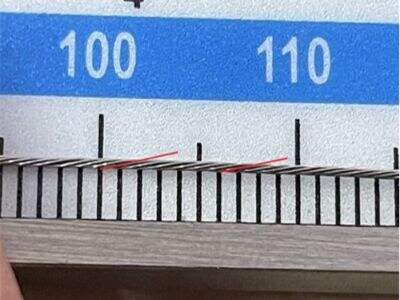Medical wires: These are special tools used by doctors to treat most medical scenarios. These can be surgical procedure involving, bones, heart, brain. Medical wires come in an abundance, and the selection is crucial for doctors to get right for every different task that has to be performed. One of the manufacturers who produces some of these medical wires is GuangTong. They also manufacture various types of medical wires in order to assist in a various medical procedure. The following are some of the types of medical wires and how they help in health care.
Nickel-Titanium Wires
Nickel-Titanium wires (also known as Nitinol wires) are widely utilized for surgeries that deals with bones. That should be new here that at least these wires are bend flexible. They even have a unique property, known as "shape memory. Which basically means that these wires are capable of deforming when heated. Such trait is very helpful while treating fractured bones. One such application is NiTi wires which are used in medical devices to stabilize broken bones during a healing process. They are also found in braces to move teeth and in onabotulinumtoxin A injection to treat excessive sweating and other muscle spasms. They can also be utilized in spinal surgical procedures for holding things in position while the body heals.
Stainless Steel Wires
A similar type of medical wire is stainless-steel wire. These wires are also popularly used for surgeries that include bones. Stainless steel wires are extremely strong and rust resistant. That makes them of great reliability for doctors. They are particularly useful for mending fractured bones and before performing surgeries on the spine. Surgeons can take advantage of this strength in a number of applications, such as bone-holding clamps or spinal-surgical systems. Usually GuangTong wire can make from0.20-0.60mm SUS304/316.
Role of Medical Wires in Bone Surgeries
Surgical wires have significant importance in surgeries dealing with bones. Some doctors use these when they operate on bones to fix instead of the broken bones together to heal. The most important thing about these medical wires is that by using these, a surgeon can mend complex injuries, and this does not even require a large incision on the body. This is called minimally invasive surgical procedure. This method allows patients to undergo a quicker recovery process and return to normal life sooner. In general, medical wires help to ensure greater safety and efficiency of surgical interventions.
Wire Employees in the Heart Operations
Similarly, medical wires are also important for heart surgeries. These wires aid physicians in locating and addressing various cardiac problems. We see many types of wires used during the heart surgeries, but the most common ones are guidewires and pacing wires. When arteries get blocked, doctors perform a procedure called angioplasty using these guidewires. Pacing wires, on the other hand, are utilized in pacemaker procedures. They assist physicians with inserting a pacemaker into a patient, controlling the heart rhythm. There are many other types of wires, including guidewires and pacing wires, that are used to complete many different heart surgeries, such as endocardial wires and epicardial wires.
Wires to Insert in Brain Operations
In surgeries that involve the brain, a bomb-medical wires are very important tools. Medical wire — for instance, electrodes in devices that support treatment of brain disease In patients with Parkinson's disease and epilepsy, doctors insert wires that stimulate specific areas of the brain. Wire is also used to repair injured nerves. Of course it matters a billion which kind of medical wires are utilized in these surgical procedures, but these have major impact on a lot of variables that determine overall success of the surgery. Thus, healthcare professionals must utilize the finest medical wires.
New Technology, Medical Wires, Small Surgeries
Special procedures in minimally invasive surgeries which means that small cuts from the body are made and tools are inserted into the body to perform the operation. The written delivery of the medical wire provides a lot of assistance in those types of surgeries, since it simplifies access for doctors to work in places which require it. However, new techniques have allowed even thinner, more flexible wires to be manufactured. These novel wires can slip between the tightest places in your body. It assists surgeons in conducting delicate procedures with more precision and care. However, this minimises the complication risk, which is crucial for patient safety and rehabilitation.

 EN
EN
 AR
AR
 BG
BG
 HR
HR
 CS
CS
 DA
DA
 NL
NL
 FI
FI
 FR
FR
 DE
DE
 EL
EL
 HI
HI
 IT
IT
 JA
JA
 KO
KO
 NO
NO
 PL
PL
 PT
PT
 RU
RU
 ES
ES
 TL
TL
 IW
IW
 ID
ID
 SK
SK
 VI
VI
 TH
TH
 TR
TR
 FA
FA
 AF
AF
 GA
GA
 BE
BE
 IS
IS
 HY
HY
 AZ
AZ
 LA
LA

